Donald Trump’s top defence advisers warn against selling nuclear subs to Australia
Two Republican foreign policy advisers expected to play pivotal roles in the next GOP White House say America’s own navy has too few nuclear-powered submarines spare to sell Australia.
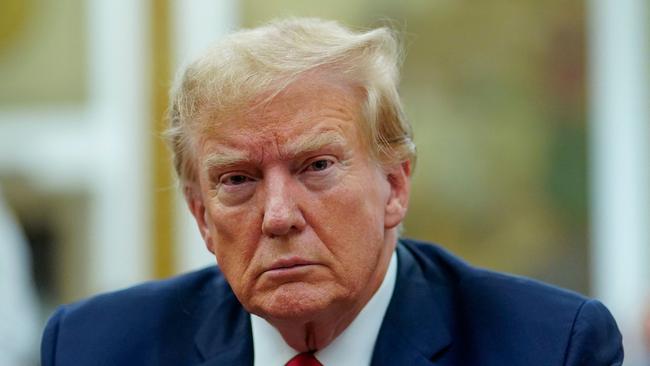
Sending US nuclear-powered submarines to Australia on current timelines is “crazy” and would deny Washington its “ace in the hole” in deterring Beijing, according to two senior national security analysts who are expected to play pivotal roles in the next Republican administration.
Just weeks after the US congress passed laws allowing President Joe Biden to sell Virginia-class boats to its AUKUS ally in Canberra, ex-Pentagon official Elbridge Colby and former republican Senate security adviser Alex Velez-Green say the superpower’s own navy has too few boats spare to sell to Australia unless production greatly speeds up.
The concerns of Mr Colby and Mr Velez-Green – two of the most respected thought leaders in US conservative circles – will raise questions for Anthony Albanese and Labor over how a Republican victory in next year’s presidential election might affect the AUKUS security pact.
Former president Donald Trump has held a consistent lead over Mr Biden in head-to-head polls in the lead-up to the first presidential primaries next month, and Mr Trump’s closest Republican rival, ex-UN ambassador Nikki Haley, leads Mr Biden by an even wider margin.
With the AUKUS legislation passed last month allowing both a future president and congress to stop the submarine sale if it is not certified as in the US’s national interests, growing scepticism from Republican security figures could sway the next GOP president against sending nuclear boats to Australia.
Mr Colby – who has advised Mr Trump, and ex-prime ministers Tony Abbott and Malcolm Turnbull – told The Australian it would be “crazy” to sell three Virginia-class nuclear-powered submarines to Australia.
The ex-US deputy assistant secretary of defence for strategy said the sale would leave American forces vulnerable “during the very time risks of war (against China) and defeat were elevating”.
“Australia is America’s best ally; it would thus be highly desirable to be able to provide Australia with US attack submarines, but these submarines are the ace in the hole for a fight with China,” Mr Colby said.
“The US has far too few available, many are in maintenance, and the production schedule is way below what we need.
“We cannot and should not do something crazy, the best way to avoid a serious problem on this is for Washington and Canberra to face facts and adapt early, rather than wait until it’s too late to miss the iceberg.”
Mr Colby’s comments came after the US House of Representatives passed the $US886bn National Defence Authorisation Act, which gave the green light for the sale of at least three Virginia-class submarines to Australia in the early 2030s provided the US president could then certify their sale would not “degrade United States undersea capabilities”.
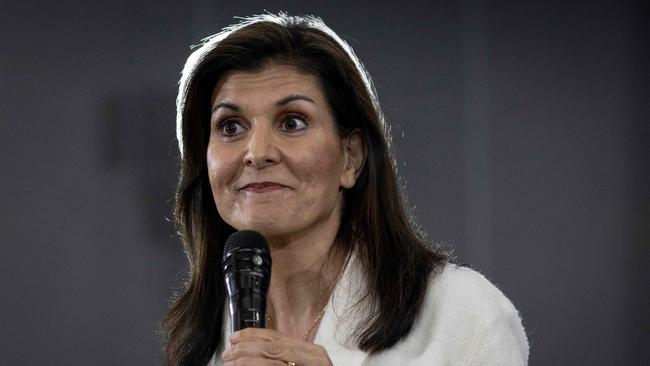
Defence Minister Richard Marles and US ambassador Kevin Rudd hailed the passage of the legislation after months of wrangling on Capitol Hill between Republicans and Democrats over concerns about the transfer of the submarines undermining the US amid a naval arms race with China.
The Australian revealed last month that a future US president would have to certify to congress that the transfer of nuclear submarines to Australia would not undermine America’s military capabilities or foreign policy under the law allowing the Virginia sale.
Republican doubts over AUKUS also come in the wake of the Albanese government rebuffing a Pentagon request for a boat to help protect Red Sea routes from Houthi rebels amid the Israel-Hamas war, instead only sending six diplomatic staff to assist with co-ordination efforts for the maritime coalition in Bahrain.
Mr Velez-Green, a senior policy adviser in The Heritage Foundation, and before that Republican senator Josh Hawley’s national security adviser, said any submarines transfer should be contingent on US shipyards’ greatly increasing production of Virginia-class boats from 1.2 to more than two a year.
“If we’re not getting more boats out, we’re just not going to be able to do it,” Mr Velez-Green told The Australian.
“These are a set of assets that we need a husband to take care of, and really protect as much as possible for any contingency.”
The US submarine force, one of the few areas within the US military still more advanced and powerful than its Chinese counterpart, is considered the most important deterrent to any Chinese invasion of Taiwan, which many analysts predict could occur before 2030 as China engages in increasingly provocative behaviour in the Indo-Pacific.
“If you get into a situation where ostensibly we’re supposed to transfer these boats, but they are critical to our ability to maintain deterrence or win (against China) if deterrence fails, I mean, at that point, I have to question giving them up,” Mr Valdez-Green said.
“We’ve got to get to a place where we can transfer those assets without diminishing in any meaningful sense our ability to deter Chinese aggression.”
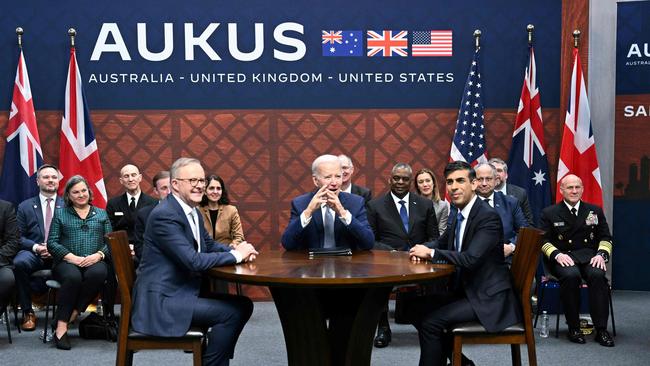
As part of the AUKUS agreement, first announced in September 2021, the navy is meant to acquire between three and five Virginia-class US submarines starting in 2032, while the government has undertaken to pay $US3bn to the US to help expand its submarine-building capacity, which has been plagued by supply bottlenecks.
In July, 22 Republicans in congress demanded the White House “immediately” provide a plan to lift production of Virginia-class submarines from 1.2 to “a minimum of 2.5” per year.
“The administration’s current plan requires the transfer of three US Virginia-class attack submarines to Australia from the existing US submarine fleet without a clear plan for replacing these submarines,” the letter, signed by influential Republicans including Ted Cruz and Susan Collins, said.
“This plan, if implemented without change, would unacceptably weaken the US fleet even as China seeks to expand its military power and influence.”
The White House proposed an additional $US3.4bn in funding for the US Navy, which is yet to pass congress, being part of a supplementary funding bill that includes contentious aid for Ukraine and Israel, and changes to US immigration law bitterly contested among Republicans and Democrats.



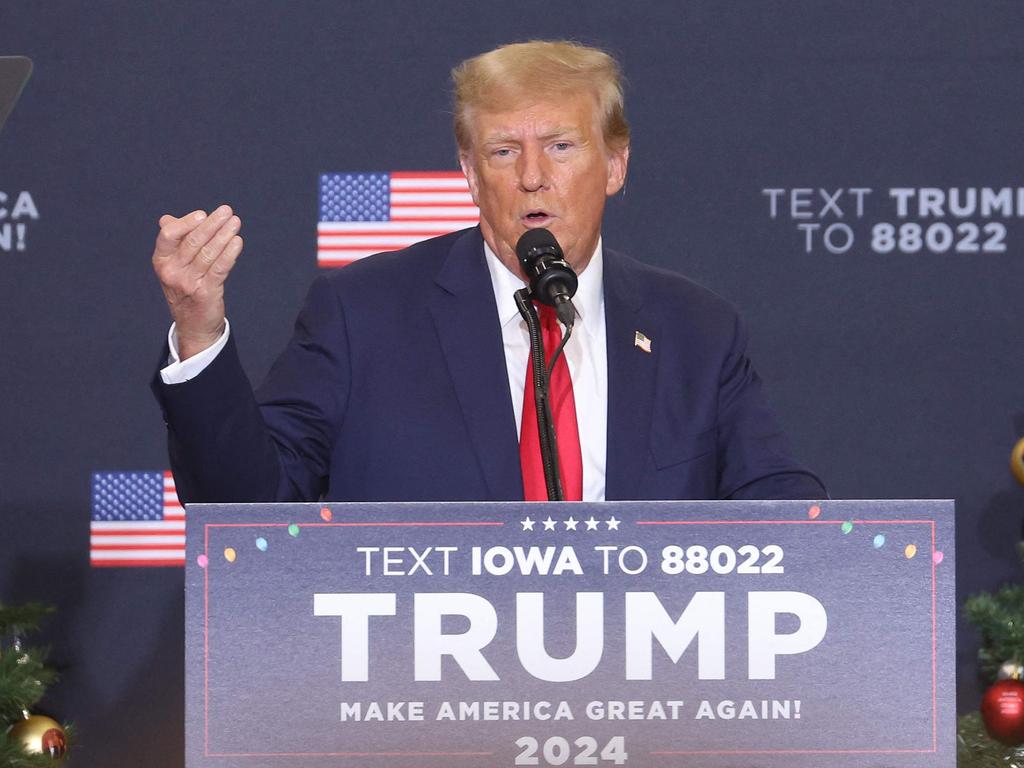
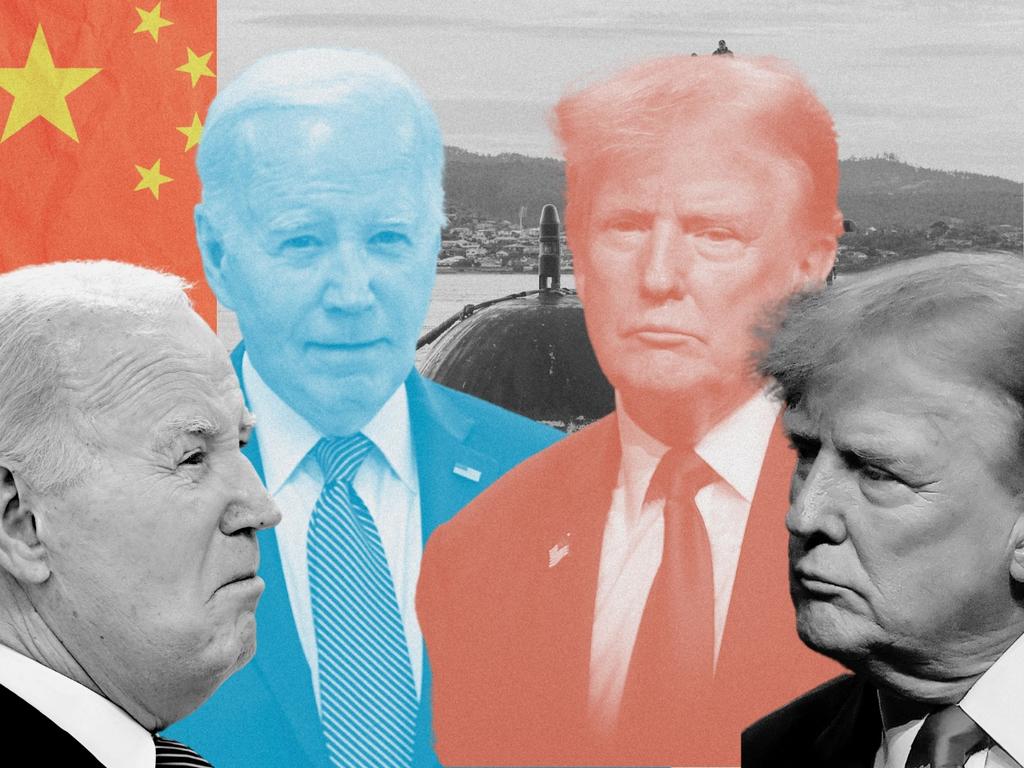


To join the conversation, please log in. Don't have an account? Register
Join the conversation, you are commenting as Logout